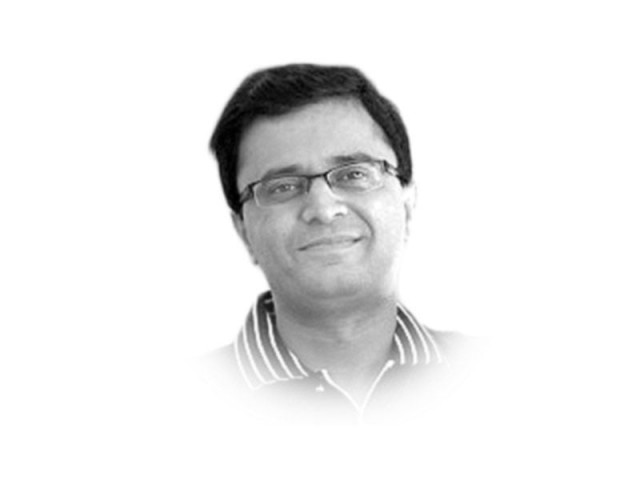The curse of inequality
The finding that capitalism has an inherent tendency to lead to an ever-increasing inequality is extremely worrying.

The writer is a research fellow at the Risk and Sustainable Management Institute at the University of Queensland and an associate professor of economics at LUMS
Rising inequality is a dominant political issue of the time. What makes Piketty’s work unique is that it uses over a century of data on US, Britain, France and other developed countries to uncover a startling, and a very disturbing fact. The finding is that an ever increasing inequality in which a small percentage of the population keeps piling up wealth at the expense of the rest of society is a natural state and the most likely outcome of the way capitalism has been practised throughout history. The advanced economies of the US and Europe are likely to descend into oligarchy in the next few decades in which wealth inherited by less than one per cent of the population will play an ever-increasing role. Wealth is not just another factor in production; it endows the rich with a great deal of power. Hence, the coming generations of super rich heirs will be in a position to simply buy the policies that they like, consolidating their hold on power as opportunities for wage earners to make a decent living diminish.

The recent findings fly in the face of conventional wisdom, which says that inequality initially rises as countries climb the ladder of progress before finally narrowing as the countries get richer. Not true, argues Piketty, armed with reams of data.
The two world wars destroyed much of the inherited wealth, weakening the power of the wealthy considerably. Hence, for a tiny blip in history, the thirty odd years after the end of the Second World War, inequality narrowed. Not so anymore. The wealthy have recovered lost ground, and have changed the rules of the game in their favour. Now, due to the favourable rules of the game, the rate at which wealth accumulates is many times greater than the rate of economic growth, and the gap is likely to get wider with time.
The finding that capitalism has an inherent tendency to lead to an ever-increasing inequality is extremely worrying. Democracy is a lot more than one person one vote. Ultimately, it has to be about equality of opportunities. The rise of the super rich heirs who live lavishly on rents from inherited wealth whereas the rest of the society toils to eke out an ever tiny sliver, is by no means a desirable state. It is likely to threaten the very notion of democracy even in the developed world.
This is all too familiar to Pakistanis. In Pakistan, we have a complete elite capture of all state institutions. As an interesting exercise, if we check the family names of members of our assemblies in 1952, and compare them to the family names of members now, we find a more than 80 per cent match.
The lesson is that wealth is not merely a factor in production. It comes with a lot of political influence, and this influence has been used historically by the wealthy to change the rules of the game in their favour. No wonder in Pakistan only the wage earners pay taxes. No wonder cartels operate with impunity in Pakistan fixing prices. No wonder there is little chance of earning a decent living, for a vast majority of us. This is what happens in a fundamentally unequal society. This is not to say that inequality is bad by nature. A degree of inequality is necessary as a reward for effort, but unlimited inequality, in which most of a society’s resources are simply captured by the elite as rents on inherited wealth at the expense of others, is fundamentally evil. It distorts the rules of the game and gives rise to a suffocating oligarchy.
Can capitalism be fixed? Apart from using the power of state to redistribute wealth, I propose that institutional capacity is developed to extend financing through profit/loss sharing contracts rather than through the traditional debt contract. If majority of financing takes place through profit/loss sharing or mudarabah contracts then the rate of wealth accumulation will be a lot more responsive to the rate of economic growth. That way, the fortunes of the wealthy will be a lot more strongly linked with the fortunes of the rest of the society; hence, the abyss of ever-increasing inequality may be avoided.
Published in The Express Tribune, April 29th, 2014.
Like Opinion & Editorial on Facebook, follow @ETOpEd on Twitter to receive all updates on all our daily pieces.















COMMENTS
Comments are moderated and generally will be posted if they are on-topic and not abusive.
For more information, please see our Comments FAQ